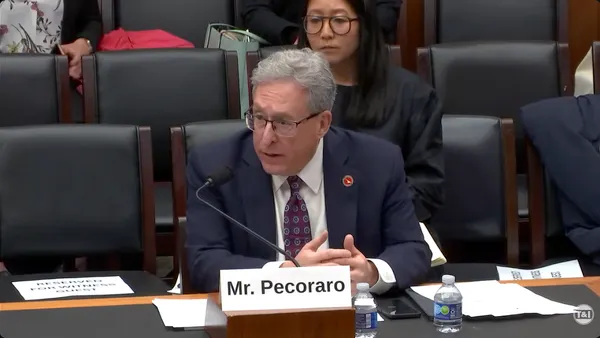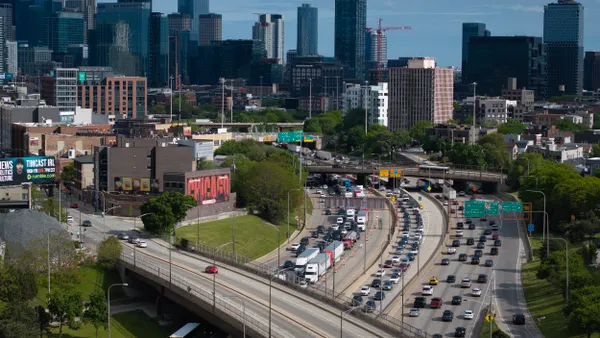Dive Brief:
-
Public, transparent testing of autonomous vehicles (AVs) will be the most effective way to instill consumer confidence in their safety, according to a recent Deloitte survey conducted during a webcast.
-
68.8% of survey respondents believe it is either somewhat or very likely that mobility and the ways people get around will change within the next five years. Only 20% doubt that behavior toward mobility will occur. The survey, part of Deloitte's Dbriefs Automotives series, polled over 3,000 professionals across the technology, banking, transportation, automotive and retail sectors.
-
Competitive fuel prices and a lack of funds for charging infrastructure investments were cited as the biggest barriers to increased adoption of electric vehicles (EV). Concerns about the recyclability of EVs was ranked as the least likely (5.9%) to prevent EV use.
Dive Insight:
Consumer trust in AV safety has stalled compared to the rapid rate of AV technology advancements, according to multiple surveys. An annual Deloitte Global Automotive Consumer Study earlier this year found 50% of U.S. consumers believe AVs won't be safe, compared to 47% of consumers in 2018 and 74% of consumers in 2017.
Despite the lag in consumer confidence, public officials and automakers remain adamant that AVs are safer than their human-controlled counterparts. In fact, about 94% of traffic accidents are caused by human error, according to the National Highway Traffic and Safety Administration (NHTSA).
"Consumers have ranked safety as one of the most important variables in their preferences towards vehicles," Joe Vitale, Deloitte’s global automotive sector leader, told Smart Cities Dive. "A big benefit and value of autonomous vehicles longer term is that it will improve safety and it will reduce the number of deaths."
The consumer preference for more visible, public safety tests could be linked to widely-publicized incidents involving AVs, including one last year when a self-driving Uber car killed a woman crossing the street in Tempe, AZ.
To help curb the public’s general distrust, governments, the auto industry and tech companies need to continue educating the public about the safety benefits of AVs, Vitale said. As part of that initiative, cities are hosting public demonstrations, including a recent event in Detroit where 500 people were invited to drive in an AV free of charge.
Another significant barrier to the widespread adoption of EVs includes an important demand for U.S. consumers: convenience.
"Today you can fill up your vehicle within five minutes and you can find a gas station probably within one mile of where ever you are," Vitale said.
That level of convenience doesn’t exist yet for EVs. There’s less available infrastructure and a significant amount of time is required to charge EV batteries — even with rapid charging technology, he said.












